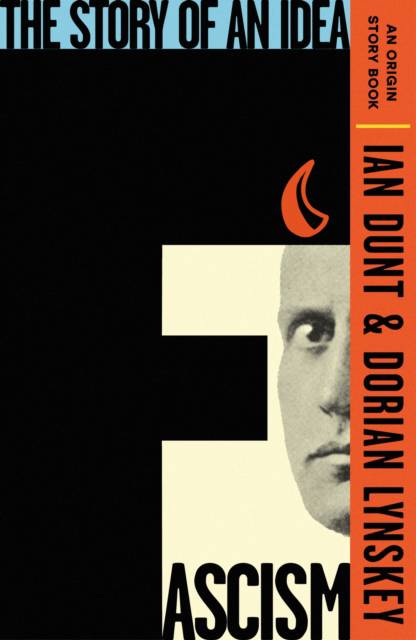
- Afhalen na 1 uur in een winkel met voorraad
- Gratis thuislevering in België vanaf € 30
- Ruim aanbod met 7 miljoen producten
- Afhalen na 1 uur in een winkel met voorraad
- Gratis thuislevering in België vanaf € 30
- Ruim aanbod met 7 miljoen producten
Zoeken
€ 15,45
+ 30 punten
Uitvoering
Omschrijving
From the creators of the chart-topping podcast Origin Story, a series of short books telling the stories of popular - but often misunderstood - political terms.
Why is 'fascist' used to describe everyone from dictators to parking wardens? Does the word 'fascism' describe a historical movement or an enduring ideology? And could we see it rise again today, in an age of populism? Unlike most major political ideologies, fascism has no clear-cut intellectual foundation. It appeals to some of the very darkest instincts in human nature: the hatred of difference, the desire to control, the delight in violence. The story of fascism shows us what happens when these instincts consume entire nations.
In Fascism: The Story of an Idea, Ian Dunt and Dorian Lynskey lay out in clear and accessible terms the origins of fascism: what happened, how it happened and why. It is only by understanding fascism's beginnings that we can start to understand what it means today - and guard against those who seek its return.
Why is 'fascist' used to describe everyone from dictators to parking wardens? Does the word 'fascism' describe a historical movement or an enduring ideology? And could we see it rise again today, in an age of populism? Unlike most major political ideologies, fascism has no clear-cut intellectual foundation. It appeals to some of the very darkest instincts in human nature: the hatred of difference, the desire to control, the delight in violence. The story of fascism shows us what happens when these instincts consume entire nations.
In Fascism: The Story of an Idea, Ian Dunt and Dorian Lynskey lay out in clear and accessible terms the origins of fascism: what happened, how it happened and why. It is only by understanding fascism's beginnings that we can start to understand what it means today - and guard against those who seek its return.
Specificaties
Betrokkenen
- Auteur(s):
- Uitgeverij:
Inhoud
- Aantal bladzijden:
- 192
- Taal:
- Engels
- Reeks:
Eigenschappen
- Productcode (EAN):
- 9781399612920
- Verschijningsdatum:
- 6/05/2025
- Uitvoering:
- Paperback
- Formaat:
- Trade paperback (VS)
- Afmetingen:
- 133 mm x 196 mm
- Gewicht:
- 176 g

Alleen bij Standaard Boekhandel
+ 30 punten op je klantenkaart van Standaard Boekhandel
Beoordelingen
We publiceren alleen reviews die voldoen aan de voorwaarden voor reviews. Bekijk onze voorwaarden voor reviews.








